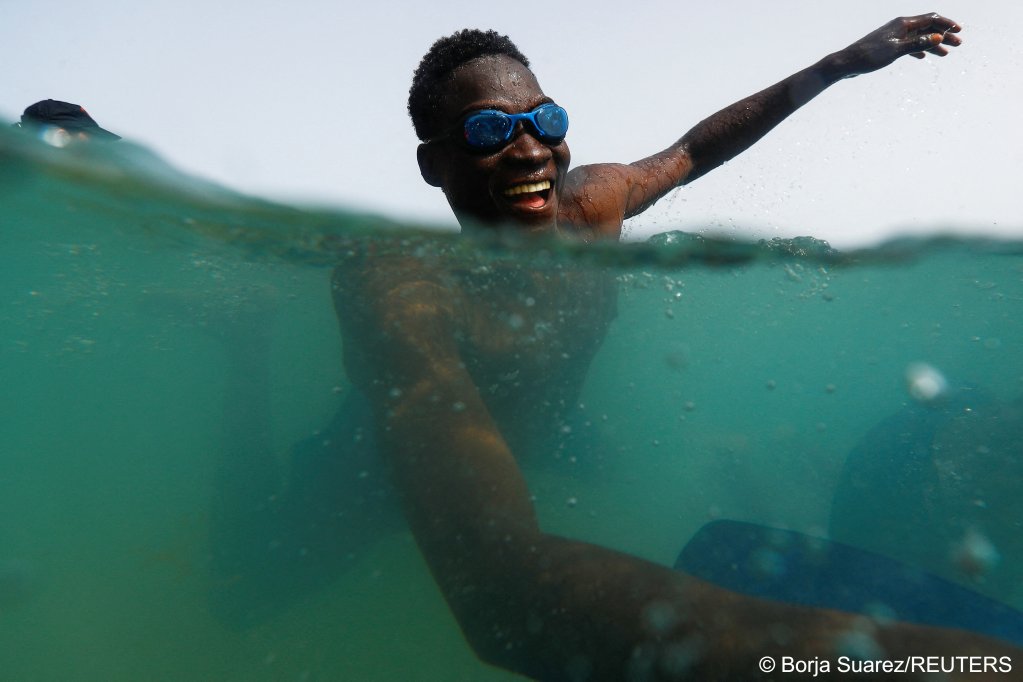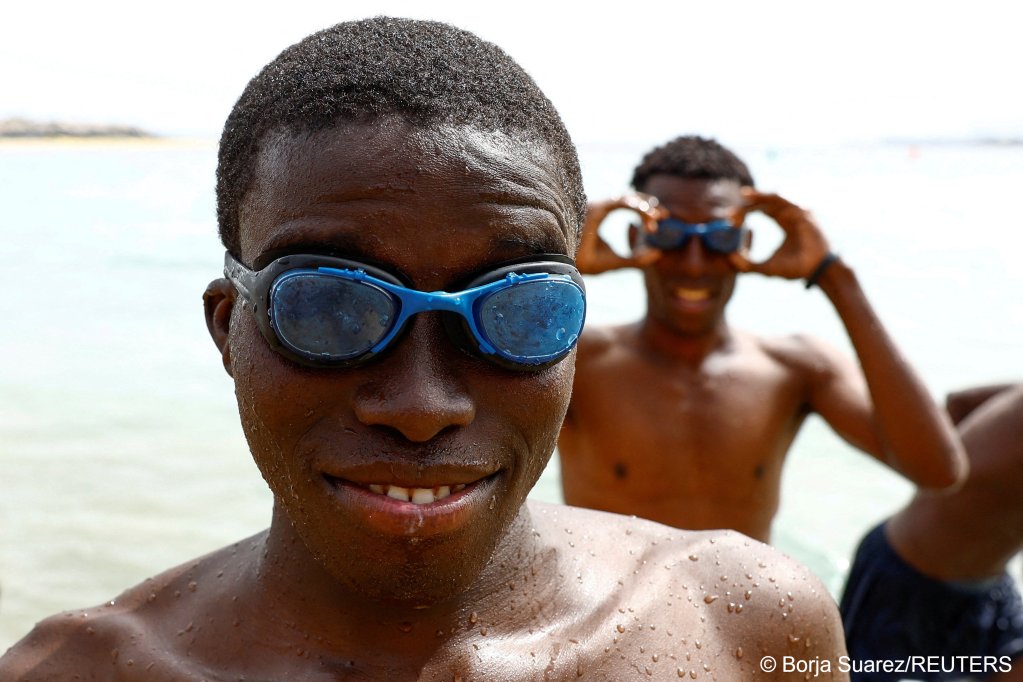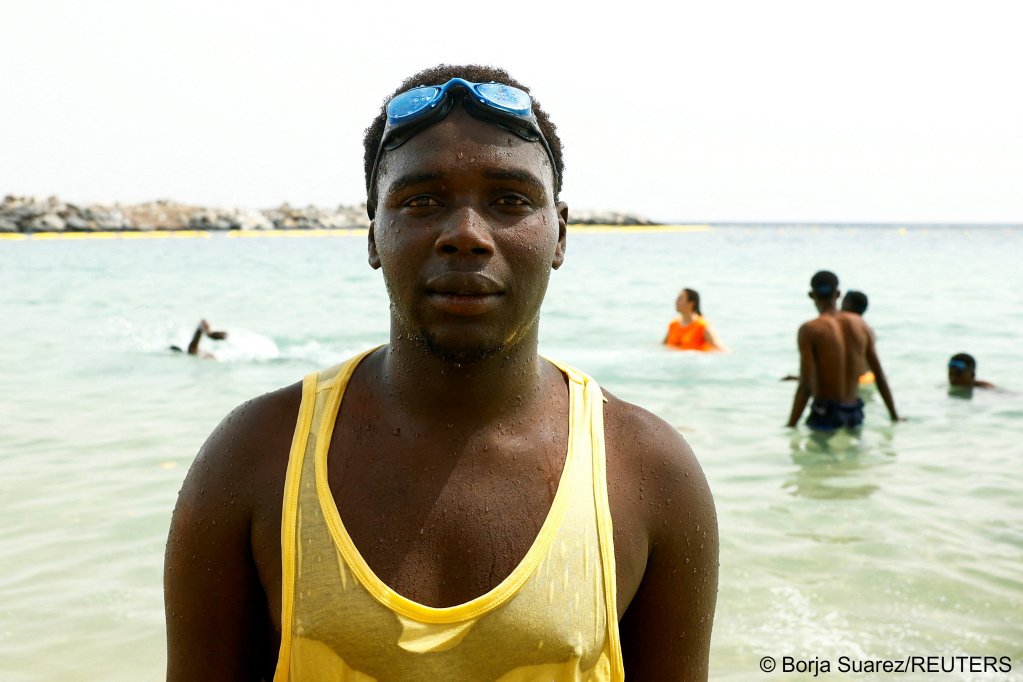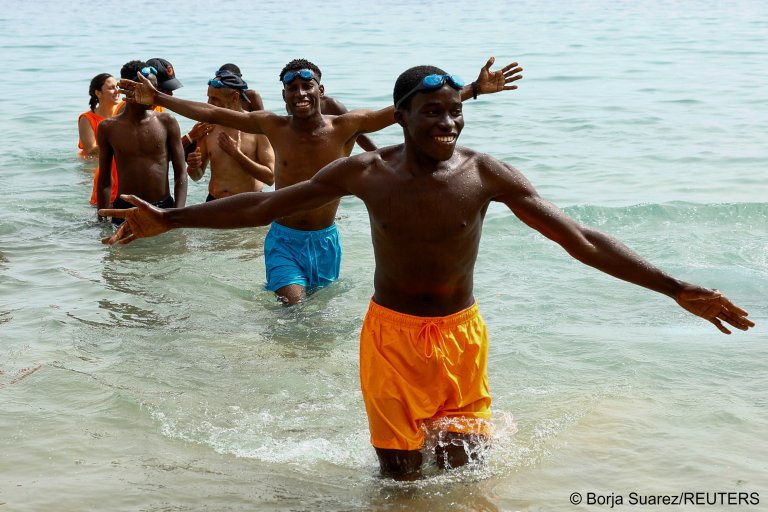Many migrants suffer from severe trauma following their migration journeys. An NGO in Tenerife is trying to help migrants overcome their water trauma and find joy in their relationship with the sea again.
Smiling broadly, perhaps to hide their nervousness, dozens of young migrants wearing swimming goggles took their first strokes and exhaled into knee-deep water on a beach on the Spanish island of Tenerife, led by local volunteer instructors.

Many have been suffering from water trauma after a perilous crossing to the Canary Islands from countries such as Senegal or Mauritania crammed into small unseaworthy boats on the rough seas of the Atlantic Ocean. Some barely survived and others lost family members or friends to the ocean.
"There are people who come with a terrible fear that you see when they get into the water holding your hand as if clinging to life," said Jorge Balcazar, coordinator of Project Agua at the rescue charity Proemaid, saying some people had spent up to 15 days at sea.

The number of migrants arriving irregularly by sea to the archipelago soared by 160 percent between January and July 15 from a year ago to almost 20,000 people, representing the bulk of such arrivals by sea to Spain, according to Spain's interior ministry.
Severe trauma
The constant fear and anxiety during these crossings can lead to severe psychological trauma. Refugees often witness harrowing events, such as others falling overboard or drowning, which can haunt them long after they reach safety.

The stress of their journey can result in lasting phobias and anxiety around water. The trauma associated with these experiences can often be hidden or underestimated. Psychologist Jacky Roptin told Euronews that while the trauma from conditions in their home countries is recognized, the violence and fear experienced at sea are sometimes downplayed, though they can be equally or more traumatizing.

Also read: Walking into the light with refugees in Munich
Unprecedented number of deaths at sea
More than 5,000 migrants have died trying to reach Spain by sea in the first five months of 2024, an unprecedented number, migration rights group Walking Borders estimated in a report. Many of those arriving are young people, including children.
The Canary Islands are currently hosting over 5,500 unaccompanied minors who recently arrived by small boats, primarily from Senegal, Mali, Gambia, and Morocco, with some also from Guinea and Mauritania. The government of Tenerife reported that 94 percent of these children are between 12 and 17 years old.

"I wouldn’t do it again. It's very difficult, very, very dangerous. It's a risk we took, because we didn’t have a choice. It’s tough in Mali," said Mamadou M Bathily, a 24-year-old trained IT specialist, who came to Tenerife a week ago via Senegal along with 215 others.
The volunteers work with groups of 35-40 people and hope to train as many as 450 during the summer, said Francisco Navarro, of another non-profit, ACCEM.

Proemaid's Balcazar said the volunteers were working with both non-swimmers and people with some water experience to "remove or reverse that trauma."
"The truth is that in a few sessions you see changes and their gratitude, which gives us a huge boost of energy."
With Reuters
